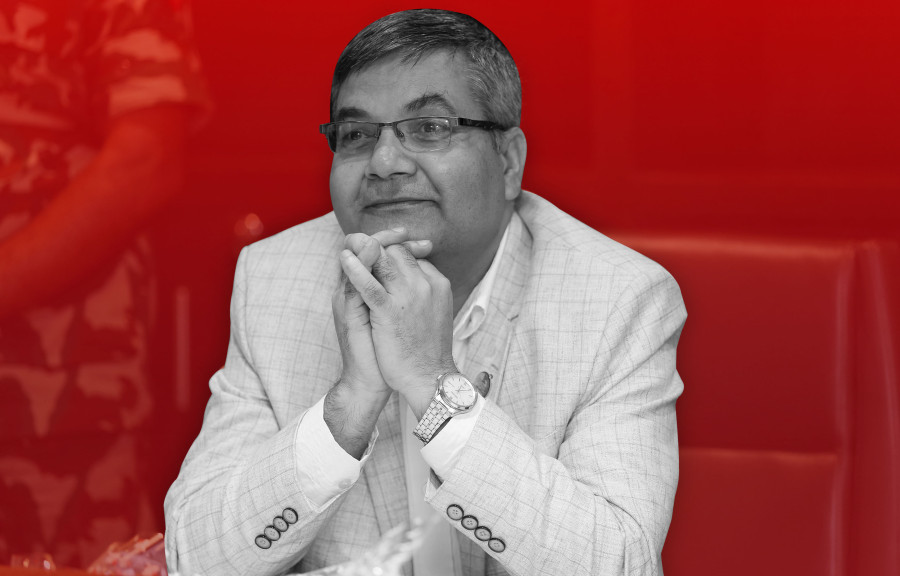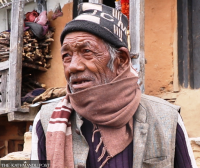National
Baskota’s recommendation to House committee raises concern about conflict of interest
The ex-minister, who was embroiled in a Rs700 million bribery scandal, has been recommended as a member of the Public Accounts Committee.
Prithvi Man Shrestha
The CPN-UML has recommended Gokul Baskota, a former communication and information technology minister, as a member of a House committee that had last year launched a probe into him in a bribery case.
Experts and analysts say the decision clearly involves a conflict of interest.
“Appointing a person to a panel like the Public Accounts Committee, which had once initiated a probe against him, is against Nepal’s relevant laws and its commitment to international convention against corruption,” said Advocate Om Prakash Aryal.
Baskota, a close aide to UML chair and Prime Minister KP Sharma Oli, was caught on tape negotiating Rs700 million bribe payment to award the security printing press contract to a Swiss company in February last year.
Baskota was forced to resign as information and communications technology minister.
As per Section 50 (1) of the National Civil (Code) Act, 2017, a member or director of any body or institution cannot take part in the decision making process on a matter involving his or her personal interest. Section 50 (2) says if a decision is affected by the conflict of interest, such a decision will be void.
Section 18 of the Good Governance (Management and Operation) Act-2008 also bars decisions that involve conflict of interest. It says an official authorised to make decisions pursuant to this provision or other laws in force shall not decide the matter with conflict of interest by the fact that his/her direct benefit, concern or interest is involved in the matter, or the decision directly affects his/her successor or close relatives or provides direct benefit to the business or profession carried out by the member of the joint family of the decision maker.
Other sectoral laws also have provisions to avoid conflict of interest. Article 8 (5) of the United Nations Convention against Corruption, which Nepal endorsed in 2011, has also called for measures barring public officials from getting involved in conflict of interest.
Furthermore, the House of Representatives Regulations-2018 bars lawmakers having personal interest from joining discussions on related issues at the House committee. Clause 191 of the regulations states: If any member of a parliamentary committee has a conflict of interest in any issue being discussed at a committee, s/he should be part of the discussion and decision on the subject.
Even though the House regulation does not prevent any lawmaker having conflict of interest from becoming a member of the concerned parliamentary committee, experts say it’s a matter of principle that conflict of interest should be avoided.
“It is not possible to write everything in the law. It is the issue to be dealt with by conscience. Baskota himself should say that he will not become a member of the Public Accounts Committee (PAC),” said Som Bahadur Thapa, a retired secretary of PAC.
Right after the audio tape suggesting that Baskota sought Rs700 in graft to award the security printing press contract to a Swiss company, the PAC had ordered halting of the entire process of procuring the press seeking to investigate the matter.
During the investigation process, the PAC had asked senior officials of the Ministry of Communication and Information Technology eight questions regarding the printing press procurement process. The questions concerned Cabinet decisions and the visits of Baskota and other senior officials to France and Germany in the name of a study tour.
The House panel also asked the government what prevented them from procuring the press through global competition and why they had only corresponded with two countries—Germany and France—for letters of intent.
The government had initially signed an MoU with France in March last year regarding the setting up of the press for printing documents like passports, banknotes, all kinds of smart cards, question papers and stickers in the country.
“With Baskota in the PAC, he may influence the House committee not to discuss the allegations against him regarding the alleged graft case of Rs700 million,” said Advocate Aryal. “Just preventing him from taking part in discussion regarding the case is not enough because it is a serious case of conflict of interest involving his alleged effort to receive a large amount in kickbacks.”
But Shanta Chaudhary, the UML’s whip, said there was no malicious intent on the UML’s part to pick Baskota as a committee member. “I am not aware of the details of the recommendation. I can talk about it later after discussing the matter in the party,” she said.
Parliamentary committees have the history of failing to ensure that the lawmakers having conflict of interest do not participate in related issues. Some lawmakers became members of the subcommittee formed to study certain topics where they have conflict of interest.
For instance, a subcommittee was formed under the parliamentary Committee on Education and Health in March 2019 to see if medical colleges were charging exorbitant fees. But the committee had lawmaker Umesh Shrestha, who owns many schools and colleges, and lawmaker Narayan Prasad Marasini, who runs private schools, too as its members.
The subcommittee failed to suggest action against any medical colleges for the wrongdoings, despite apparent evidence of many of them charging exorbitant fees. Instead, it suggested the government increase the student quotas for medical colleges raising questions if the subcommittee came under the influence of lawmakers like Shrestha and Marasini.
Lawmakers who own ‘A’ Grade construction companies are members of the Development Committee that is authorised to oversee development works. Though Hari Narayan Rauniyar of Pappu Construction is now suspended, Jip Chhiring Lama, owner of Lama Construction, is a member of the committee.
Two lawmakers from the Nepali Congress—Jip Chhiring Lama and Bahadur Singh Lama—are members of the Development Committee, whose mandate is to oversee development projects. Both members of Parliament are ‘A’ class contractors who have bagged government contracts worth billions.
Even Hari Narayan Rauniyar, founder of the infamous Poppu Construction, was a member of the Development Committee before he was suspended as lawmaker following a corruption case filed against him.
However, Kalyani Kumari Khadka, the committee chair, defended their continued presence in the committee saying that they have no influence on its decisions so far.
“Our committee has issued many instructions regarding poor works in construction projects and the action to be taken against those responsible for the poor job. You can see for yourself whether there is any indication of contractors’ role in those instructions,” she said.
“If any member of parliament has conflict of interest in any issue, the concerned lawmaker either does not participate in related discussions or they cannot interfere even while participating.”
Earlier, the Finance Committee under the previous parliament had faced charges of taking decisions in favour of bank promoters under the influence of lawmakers who were promoters of some banks.
But, experts say despite claims that lawmakers having conflict of interest are not influencing the decision of the parliamentary committee, it does not mean they can never influence the decision of the relevant committees, experts say.
“There is no reason for including lawmakers who may have conflict of interest in a relevant parliamentary committee,” said former PAC secretary Thapa. “Once the parliamentary party of any party recommends the name, the Speaker should be able to ask the concerned political party to recommend an alternative name.”
After the Speaker tables the proposal at the House, it should endorse the name recommended for certain committees as per the parliamentary rules.
Advocate Aryal said that the latest decision of the ruling UML to recommend Baskota as a member of the Parliamentary Accounts Committee has also raised questions over the commitment of Prime Minister Oli to good governance. “This recommendation clearly suggests the hollowness of Oli’s commitment against corruption,” he said.




 13.12°C Kathmandu
13.12°C Kathmandu













